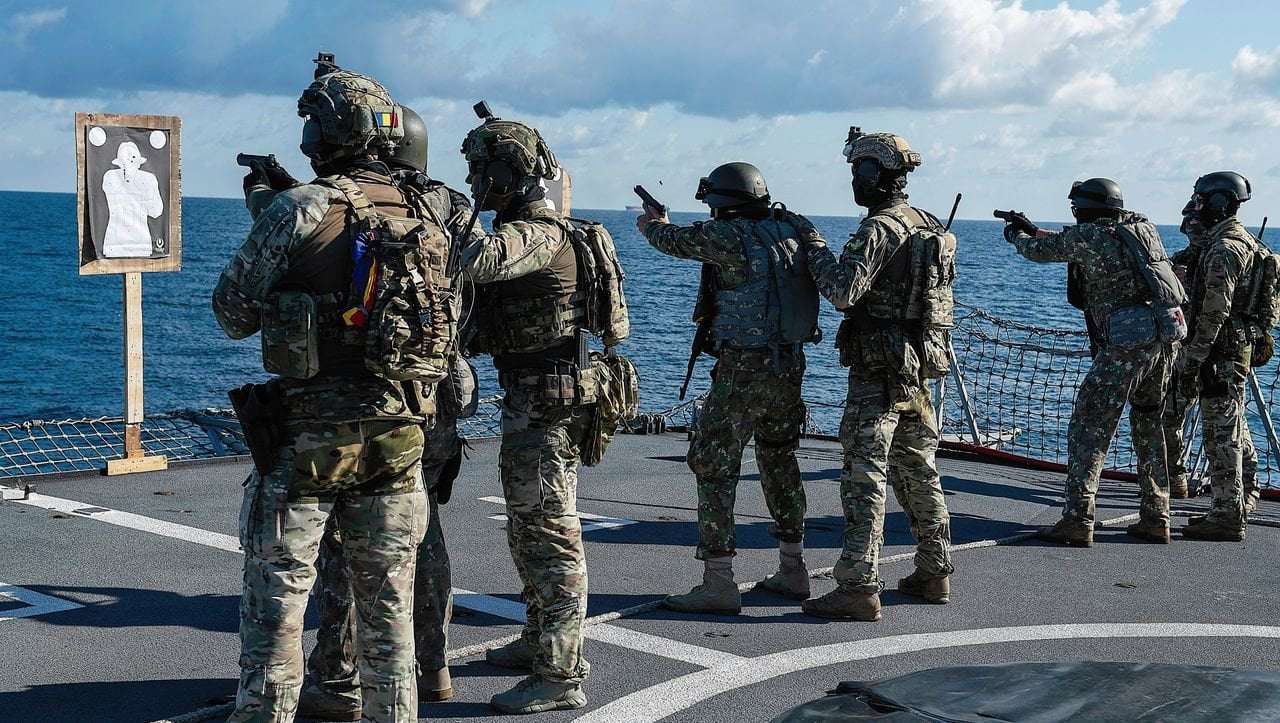The Bosporus Strait, just 700 meters wide at its narrowest point, is the eye of the needle through which the fleets belonging to Black Sea nations must pass. Just before the outbreak of war, 16 ships belonging to the Russian navy passed through the strait heading north.
The Bosporus also works like a membrane. In times of war, it is a boundary, but in peace times, it is permeable. The decision lies with the Turks.
"Of course, we want to keep track of everything that is going in and coming out," says Serkan Gerçek, the Mukhtar – municipal head – of Rumelifeneri, located at the northern mouth of the Bosporus, which was part of a military exclusion zone until 1985. From his office chair beneath a portrait of Atatürk, Gerçek looks out over the spot where the Bosporus meets the Black Sea. He has a real-time view of the shipping lanes heading into the theater of war, and also keeps tabs on the Marine Traffic app.
"The war is far away, geographically at least," says Gerçek. "Psychologically, though, it upsets us, because we have bread on the table and some over there in Ukraine do not."
Violence, flight and displacement – they are recurring issues in the Black Sea region. The town of Rumelifeneri was once settled by Pontic Greeks. Today, a mosque stands on the foundations of the old Greek church. Those who have settled the town come from the area around the Black Sea city of Rize – like the ancestors of the president.
Erdoğan, who has dominated his country's political stage for the last two decades, has positioned himself as a mediator in the face of Russia's aggression against Ukraine. On the one hand, he allows combat drones built by his own son-in-law to be delivered to Ukraine and demands the return of all areas occupied by the Russians. On the other, though, he continues to be in constant contact with Putin and ensures that Russia has access to badly needed supplies in exchange for cheap natural gas deliveries to Turkey.
Erdoğan doesn't support the sanctions that have been levied against Russia, putting up with being referred to as "Putin’s dealer" as a consequence. Capital flowing out of Russia is gratefully absorbed by Turkey. In return, Turkish and – by way of the Turkish detour – European companies find themselves operating in a sanctions-induced vacuum. From Anatolian ports, they deliver wares via ferry across the Black Sea – 8,200 of them per month last spring, one every five minutes. Supplies also make their way into Russia overland through the Caucasus.
Geopolitical pressure is mounting on the government in Ankara. "The remilitarization of the Black Sea region is counter to Turkish interests," says Professor Mustafa Aydın, of Kadir Has University in Istanbul, his office looking out over the Golden Horn. "The massive build-up, especially on the western flank with NATO bases from Poland to Romania and into Greece, but not in Turkey, is generating significant amounts of mistrust among us."
Erdoğan’s overall positive role in the Ukraine conflict, says the political scientists, contrasts with the "negative Western view of his other policies. They praise him little because they are afraid he might immediately demand something in return." Turkey is reeling under an inflation rate of over 50 percent, a consequence of the low interest rates decreed by the president. Almost a third of the Turkey's population now lives below the country's poverty line.
Erdoğan's re-election in May is considered anything but a slam dunk. Even in the area where the president was born, the impoverished Istanbul neighborhood of Kasımpaşa, people are increasingly souring on their leader. Whether it’s the walnut vendor on the corner or the childhood friend in the shade of the Sinan Paşa Mosque, pretty much everybody is complaining about both the runaway inflation and the president’s hubris.
Might there be a change in power on the eve of the Republic's 100th birthday? It would be yet another major shift since the Russian invasion of Ukraine. "February 24, 2022, marks the end of the dream of peaceful cooperation on the Black Sea," says Professor Aydın. "Now, we really are seeing a return of the Cold War." Russia, he notes, may not be as strong as many had thought, but it is still strong enough to start conflicts.

--Muther-- on March 16th, 2023 at 04:44 UTC »
Have the Germans been asleep since 2014....yes, yes they have